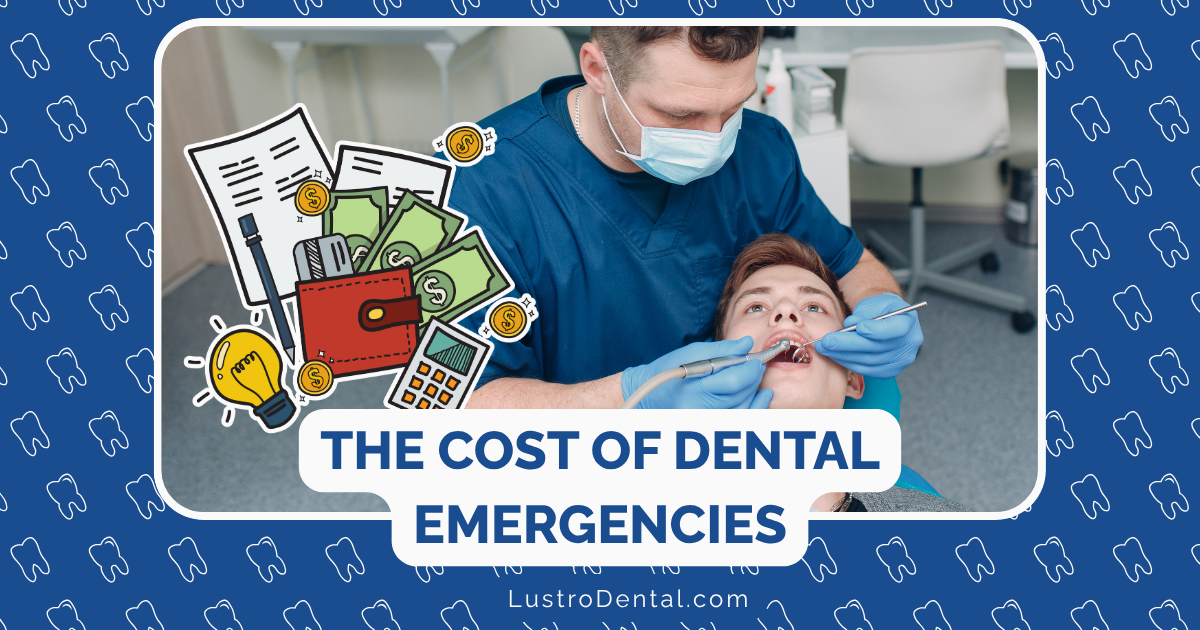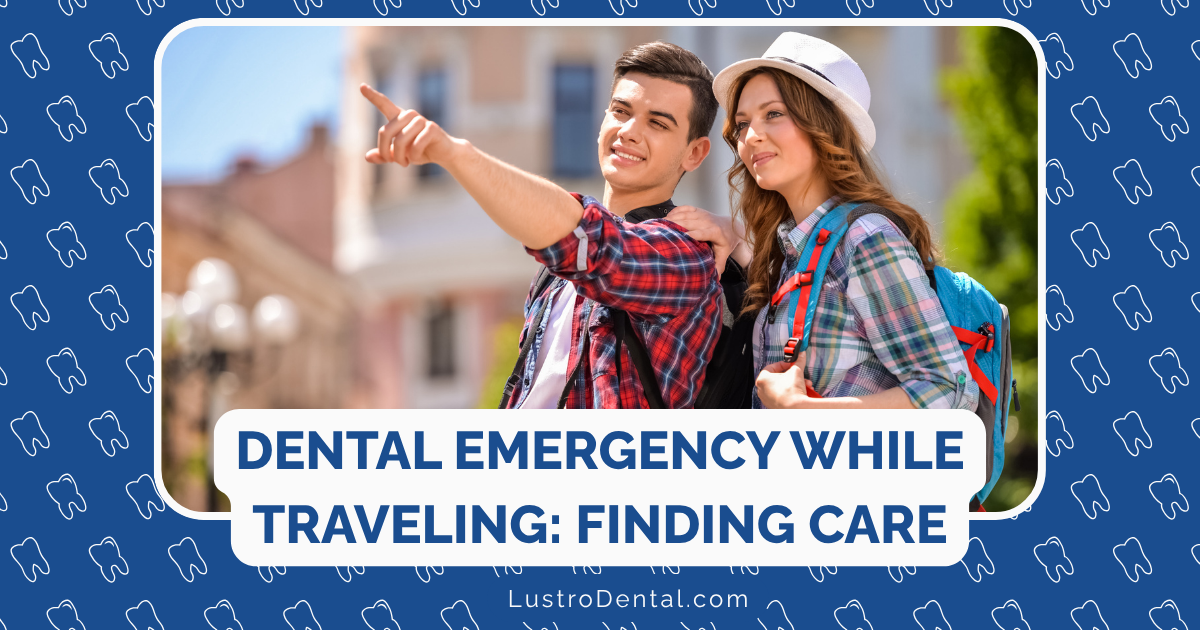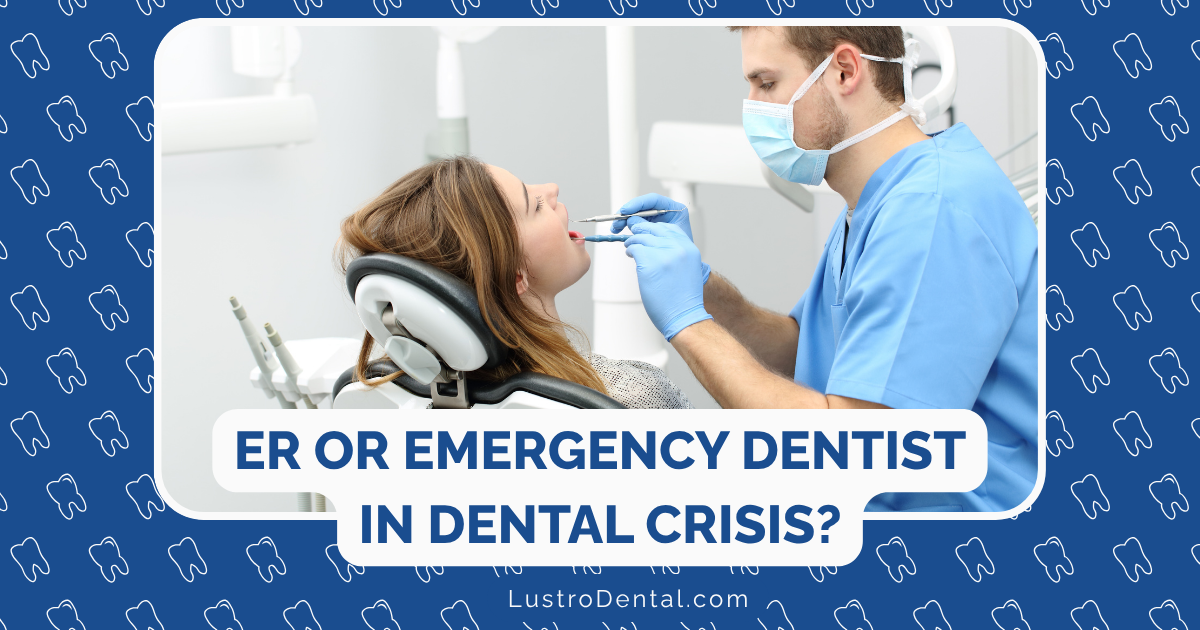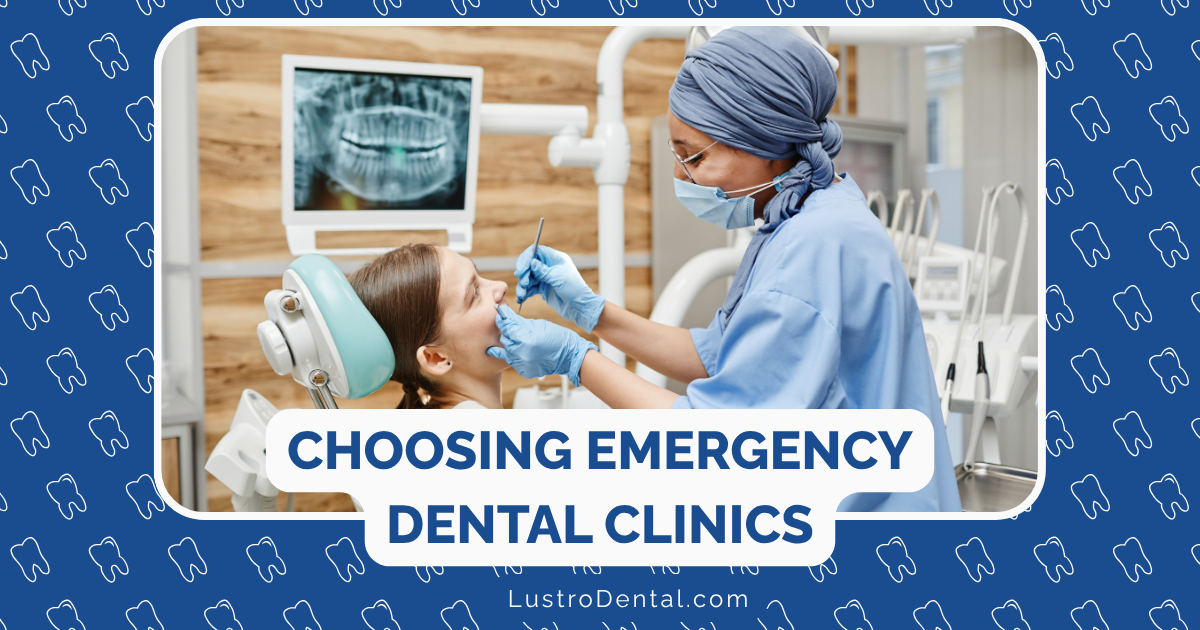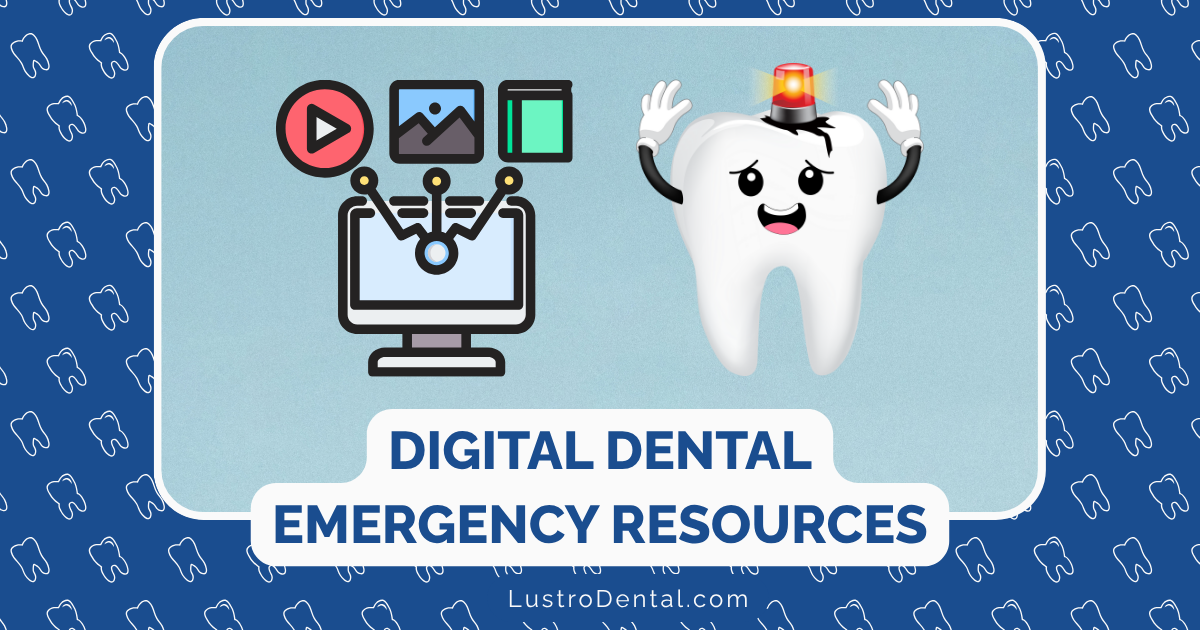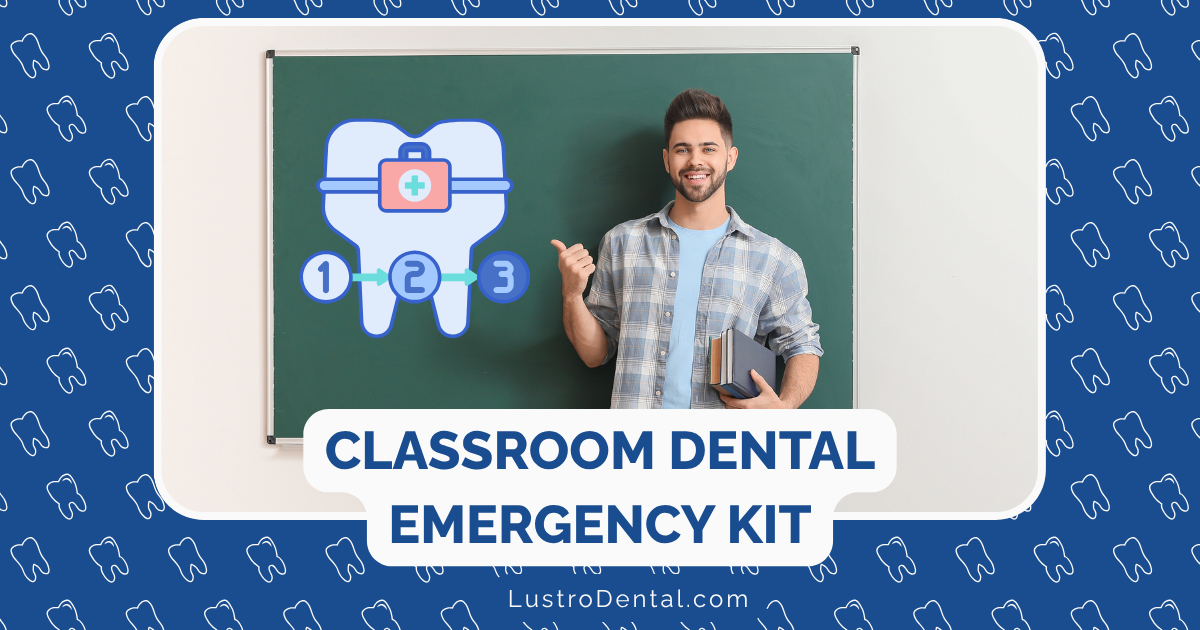After Hours Dental Care: How to Find Help When Your Dentist Is Closed
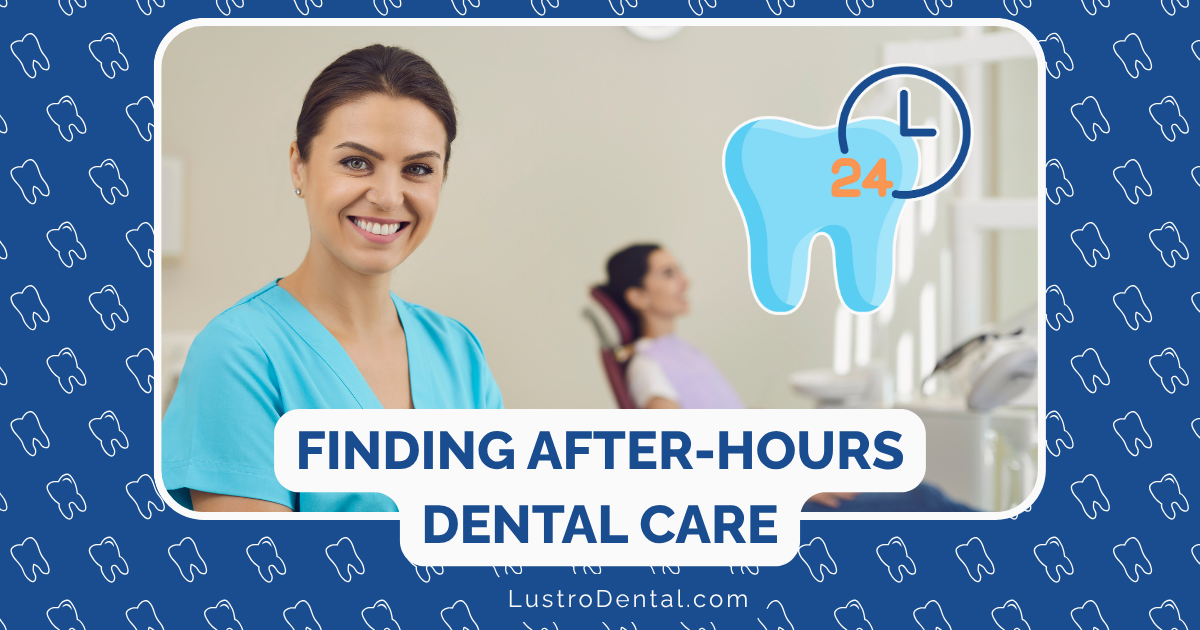
It always seems to happen at the most inconvenient time – a throbbing toothache that starts Friday evening, a crown that pops off during a holiday weekend, or a chipped tooth during a Sunday family gathering. Dental emergencies rarely respect office hours, leaving many of us wondering where to turn when our regular dentist’s office is closed.
As someone who’s spent years helping patients navigate dental emergencies, I understand the anxiety and uncertainty that comes with sudden dental pain or trauma outside of normal business hours. The good news is that you have options – and knowing what they are before an emergency strikes can save you time, money, and unnecessary suffering.
Let’s explore how to find after-hours dental care when you need it most, and what steps you can take to manage the situation until professional help is available.
Is It Really a Dental Emergency?
Before diving into your options for after-hours care, it’s important to determine whether your situation truly requires immediate attention or if it can wait until regular office hours.
Situations That Typically Require Immediate Attention:
- Severe, uncontrollable pain that doesn’t respond to over-the-counter pain medication
- Significant trauma to the mouth or face, especially with bleeding that won’t stop
- Knocked-out (avulsed) permanent tooth – time is critical for saving the tooth
- Loose tooth in an adult (not normal and could indicate an injury)
- Swelling of the face, gums, or around the eye
- Signs of infection such as fever, swelling, and severe pain
- Bleeding that doesn’t stop after applying pressure for 15 minutes
Situations That Can Usually Wait for Regular Office Hours:
- Minor toothache that responds to over-the-counter pain medication
- Small chip in a tooth with no pain
- Lost filling without significant pain
- Broken or lost crown that isn’t causing severe discomfort
- Food caught between teeth
- Broken braces wire that can be temporarily managed
Dr. Michael Chen of the American Dental Association advises: “When in doubt about the urgency of your dental situation, it’s always better to err on the side of caution. Many dental offices have after-hours phone lines where you can speak with someone who can help you determine if you need immediate care.”
Options for Finding After-Hours Dental Care
If you’ve determined that your situation requires prompt attention, here are your main options for finding care when your regular dentist is closed:
1. Contact Your Regular Dentist First
Many dental practices have protocols in place for after-hours emergencies:
- Check your dentist’s voicemail – It often includes instructions for emergency situations
- Call the office number – Some practices forward after-hours calls to an on-call dentist
- Visit their website – Look for emergency contact information or protocols
- Check recent paperwork – Emergency contact information is sometimes provided on receipts or appointment cards
Dr. Sarah Johnson of Dental Emergency Care Association notes: “Many dentists make arrangements to see their patients of record for true emergencies, even outside regular hours. Always try contacting your regular dentist first, as they have your records and know your dental history.”
2. Dedicated Emergency Dental Clinics
In many urban and suburban areas, dedicated emergency dental clinics provide extended hours, including evenings, weekends, and holidays:
- Search for “emergency dentist” or “after-hours dentist” in your area
- Look for clinics advertising “walk-in appointments” or “same-day emergency care”
- Check if they accept your insurance before going
- Call ahead to confirm wait times and whether they can address your specific issue
These clinics specialize in urgent dental care and often have more flexible hours than traditional practices.
3. Dental Schools
Many dental schools operate clinics that may offer emergency services at reduced fees:
- University dental schools often have emergency clinics staffed by supervised students
- Hours vary, but some provide evening or weekend services
- Fees are typically lower than private practices
- Call ahead to verify availability and protocols
The American Dental Education Association maintains a directory of dental schools that can be a valuable resource for finding care at a dental school near you.
4. Hospital Emergency Departments
While not ideal for most dental issues, hospital emergency rooms are an option in certain situations:
- Best for: Facial trauma, uncontrolled bleeding, severe swelling affecting breathing, signs of serious infection (high fever, facial swelling)
- Limitations: Most ERs don’t have dentists on staff and can only provide antibiotics and pain management, not definitive dental treatment
- Cost: Typically much more expensive than dental offices
- Follow-up: You’ll still need to see a dentist for definitive treatment
Dr. Robert Williams, emergency medicine physician at National Emergency Medicine Association, explains: “Emergency rooms are equipped to manage pain, prescribe antibiotics for infections, and address traumatic injuries, but they typically can’t provide definitive dental care like fillings, crowns, or root canals. Think of the ER as a temporary solution until you can see a dentist.”
5. Teledentistry Services
A relatively new option, teledentistry platforms connect patients with dental professionals remotely:
- Virtual consultations can help determine the urgency of your situation
- Available 24/7 through various apps and websites
- Prescription capabilities for antibiotics or pain medication when appropriate
- Guidance on temporary self-care until you can see a dentist in person
Popular platforms include The TeleDentists, Denteractive, and Dentulu, which can be accessed through their websites or mobile apps.
6. Urgent Care Centers
Some urgent care centers have expanded to include basic dental services:
- Call ahead to confirm they handle dental issues
- Services vary widely between locations
- More affordable than emergency rooms
- Limited dental expertise compared to dedicated dental clinics
How to Prepare Before an Emergency Happens
Being prepared can make a significant difference when facing a dental emergency outside regular hours:
1. Know Your Dentist’s Emergency Protocol
- Ask at your next appointment about their after-hours emergency procedures
- Save emergency contact numbers in your phone
- Keep a physical copy of contact information in your wallet or emergency kit
2. Research Options in Advance
- Identify emergency dental clinics in your area before you need them
- Save contact information for 2-3 options
- Check which facilities accept your insurance
- Know the location and hours of the nearest options
3. Create a Dental Emergency Kit
Having supplies on hand can help you manage pain and minor issues until you can see a dentist:
- Over-the-counter pain relievers (acetaminophen, ibuprofen)
- Temporary dental cement for lost fillings or crowns (available at pharmacies)
- Dental wax to cover sharp edges
- Cotton balls and gauze for bleeding control
- Salt packets for making saltwater rinse
- Small container with lid for storing a knocked-out tooth
- Save-A-Tooth kit (if available)
- Contact information for emergency dental providers
Managing Dental Emergencies at Home While Waiting for Care
Sometimes you’ll need to manage the situation at home while waiting to see a dentist. Here are some temporary measures for common emergencies:
For a Knocked-Out Tooth
Time is critical – a tooth has the best chance of being saved if reimplanted within 30-60 minutes.
- Handle the tooth by the crown (top), not the root
- Gently rinse with water if dirty, but don’t scrub or remove any attached tissue
- Try to reinsert the tooth into the socket if possible
- If reinsertion isn’t possible, store the tooth in milk, Save-A-Tooth solution, or saliva (tucked between cheek and gum if the person is conscious and able)
- Seek emergency dental care immediately
For a Toothache
- Rinse with warm saltwater (½ teaspoon salt in 8 oz water)
- Gently floss around the tooth to remove any trapped food
- Apply a cold compress to the outside of the cheek (20 minutes on, 20 minutes off)
- Take over-the-counter pain medication according to package instructions
- Do NOT place aspirin directly on the gums – this can cause chemical burns
- Avoid very hot, cold, or sweet foods and beverages
For a Lost Filling or Crown
- Keep the crown or filling if you have it
- For a lost filling: Temporary dental cement from a pharmacy can be used to fill the cavity
- For a loose crown: Clean the inside, apply dental cement or toothpaste, and try to reposition it
- Avoid chewing on that side of your mouth
- If the area is sensitive, use clove oil or dental anesthetic gel on the affected tooth
For a Broken or Chipped Tooth
- Rinse your mouth with warm saltwater
- If there’s bleeding, apply gauze with gentle pressure until it stops
- Use dental wax to cover any sharp edges
- Apply a cold compress to reduce swelling
- Take over-the-counter pain medication if needed
- Avoid biting or chewing with the damaged tooth
For Soft Tissue Injuries (Cuts to Lips, Gums, or Tongue)
- Rinse with diluted saltwater
- Apply pressure with gauze or a tea bag for 15-20 minutes to control bleeding
- Use a cold compress on the outside of the mouth to reduce swelling
- If bleeding doesn’t stop after 20 minutes of pressure, seek emergency care
Cost Considerations for After-Hours Dental Care
Emergency dental services often come with higher fees than regular appointments. Here’s what to know about costs:
Insurance Coverage
- Check your dental insurance policy for emergency coverage details
- Many plans cover emergency treatment but may have different copays for after-hours care
- Some plans require pre-authorization even for emergencies
- Keep your insurance card with you when seeking emergency care
Without Insurance
If you don’t have dental insurance, be prepared for these approximate costs:
- Emergency exam: $75-150
- X-rays: $25-250 (depending on type)
- Tooth extraction: $200-700 (depending on complexity)
- Root canal: $700-1,500
- Reimplantation of knocked-out tooth: $300-500
Payment Options
Many emergency dental providers offer:
- Payment plans
- Credit care options like CareCredit
- Sliding fee scales based on income
- Discount dental plans (if you’re a member)
Dr. Lisa Wong of Dental Financial Association suggests: “Always ask about payment options upfront. Many emergency dental clinics understand that emergencies are unexpected and offer flexible payment arrangements. Don’t let fear of cost prevent you from seeking necessary care, especially for potentially serious conditions.”
When to Go to the Emergency Room vs. an Emergency Dentist
While most dental emergencies are best handled by dental professionals, certain situations warrant a trip to the hospital emergency room:
Go to the Emergency Room If:
- You’ve experienced trauma to the face or jaw that might involve fractures
- You have swelling that extends into the eye or neck or affects breathing or swallowing
- You have uncontrolled bleeding that doesn’t stop with pressure
- You have signs of serious infection such as high fever, extreme swelling, or difficulty breathing
- You need immediate pain control and cannot reach a dentist
Go to an Emergency Dentist If:
- You have a dental issue that doesn’t involve the above severe symptoms
- You’ve knocked out, fractured, or chipped a tooth
- You have a lost filling, crown, or broken dental appliance
- You have a severe toothache without facial swelling or fever
- You have an abscess or gum infection without severe swelling or fever
Finding Emergency Dental Care While Traveling
Dental emergencies can be particularly stressful when you’re away from home. Here’s how to find care while traveling:
Domestic Travel
- Contact your hotel concierge for local recommendations
- Use the ADA’s Find-A-Dentist tool on their website
- Call your dental insurance for in-network providers in the area
- Search online for emergency dental clinics in your location
International Travel
- Contact your travel insurance if you have it
- Ask hotel staff for recommendations
- Contact the nearest U.S. embassy or consulate for referrals to English-speaking dentists
- Look for dental schools in major cities
- Consider travel medical evacuation insurance for extensive dental emergencies
The International Association for Medical Assistance to Travelers (IAMAT) maintains a directory of qualified medical and dental professionals worldwide who speak English.
Preventive Measures to Avoid After-Hours Emergencies
The best emergency is the one that never happens. Consider these preventive strategies:
- Schedule regular dental check-ups to catch issues before they become emergencies
- Complete recommended treatment promptly rather than delaying
- Wear a mouthguard during sports or if you grind your teeth
- Avoid using teeth as tools to open packages or bottles
- Don’t chew ice, popcorn kernels, or hard candy that can crack teeth
- Address teeth grinding or clenching with your dentist
- Maintain good oral hygiene to prevent infections and decay
Conclusion: Being Prepared Makes All the Difference
Dental emergencies outside regular office hours can be stressful, but knowing your options and being prepared can significantly reduce anxiety and improve outcomes. Remember these key points:
- Know your dentist’s emergency protocol before you need it
- Research local emergency dental options in advance
- Create a basic dental emergency kit for your home
- Understand when to seek emergency room care versus dental care
- Have a plan for managing temporary pain and problems at home
By taking these steps now, you’ll be much better equipped to handle a dental emergency when your regular dentist is closed. Your quick action and knowledge could mean the difference between saving or losing a tooth, experiencing prolonged pain, or finding prompt relief.
Have you ever experienced a dental emergency outside regular hours? What resources did you find most helpful? Share your experiences in the comments below to help others prepare for the unexpected.


